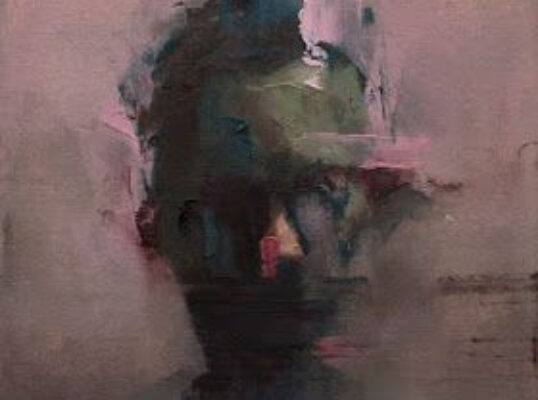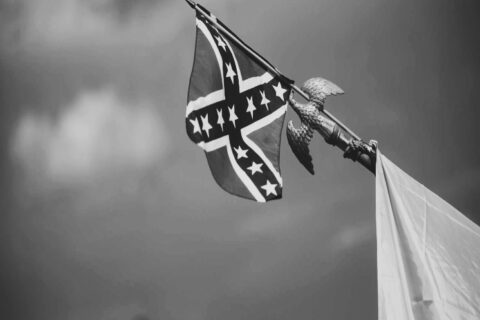Man was made in the image of God.
We all remember this saying, even if we can’t remember where in the Bible it was uttered. Its interpretation has varied widely throughout the ages, and it has informed all philosophies and worldviews originating in any part from Christianity. It can be argued to be the very origin of the concept of human rights, and the sanctity of human life; after all, all things sacred by definition are of God. The human physical form has come to be associated with the literal image of God, both in His earthly incarnation as Christ and even depictions of the Father. “Gods” in the pre-Christian sense were humanoid entities that may have even been physical humans in a past life themselves. The pervasiveness of the divine in the human and the human in the divine explains too much to list in a single article, but I wish only to lay out what is logical to me about the human mind based on this idea.
All living creatures, by their very nature, must be possessed of a mind if they are to do anything; all the mind has to be in most cases is a control panel for carrying out basic actions incidental to living. The most advanced of these are formed in a complex, energy-hungry organ – the brain. The brain works by sending electrical and chemical signals all over the body as needed to accomplish some task or another, as coded into that creature’s DNA. This is an entirely mechanical process as far as we understand it today, and holds just as true in humans as in animals, and is along with the rest of our physical body our commonality with animals at large. Thus, it can be called the Animal Mind. All activities related to basic function, survival, and reproduction are carried out through this mind; it is the “physical” part of the human existence, and a deficiency or imbalance therein can result in physical ailments, lack of vigor, and reproductive failure.
Man, however, is undeniably more than a mere animal. We were said in ages past to lay midway between the beasts and the Gods, and as discussed above there is undoubtedly an image of the divine within us. What form does that take, and what are its effects? Enter the Divine Mind. This has been called a vast number of things across cultures and centuries; spirit, soul, Logos. What matters, however, is that it is our link to the higher beings of existence, as well as the origin of all conscious thought. It is a misnomer to say a person “thinks” with their brain, for that is the animal mind; its domain is instinct, emotion, and the subconscious. A Divine or Godly Man is a logical, conscious being that largely has control over his own actions and therefore bears responsibility for them. He cannot fall back on the excuse of it being in his nature to do something, for God has granted him a degree of control over that nature in the form of free will. As we will see, however, not all humans are equally divine in their mindset, nor is absolute divinity something mankind should strive for.
Animal young are fascinating in their greater ability to care for themselves at a young age relative to humans, who are rather helpless until much further along in their development. This stems in large part from the split development of the human mind; the animal must only develop the physical brain, which grows much as any other organ, though it is far more energy-expensive. The human child, by contrast, is not designed to be a purely physical creature and cannot survive competitively on his animal senses alone. Instead, he must develop in addition his connection to the divine, in the form of his conscious thoughts. This must be imparted to him, as the thought was imparted by God; first by his family, then by society. There is an important balance of instinct and logic that must exist in a properly functional human, not veering too far to either side, lest we either devolve into animal barbarism or become detached from natural reality.
The West has long been known for its promotion of logic and reason in its worldview and rationale, especially since the Enlightenment. Beginning in the Middle Ages, from the fusion of Christianity and Classical Philosophy, European man sought to understand the mind of God through his own senses and faculties in addition to scripture and patristics. This lay in stark contrast to the majority of world religions, who either value only divine revelation alone or follow a legalistic clerical tradition. Eventually, as Europe’s wealth increased proportionate to the world and it became the ascendant continent, and the nobility began to eschew their old martial culture and lifestyle, a class of wealthy intellectuals emerged who were able to insulate themselves from the condition of the world around them and surround themselves with books and likeminded people. These refined individuals had honed the divine aspect of the mind to such a degree that they were able to push science and economics to never-before-seen levels and question every aspect of the system in which they lived – including the Church. That very institution that had nurtured and preserved Western thought for centuries now came under fire, as the intellectuals began to deconstruct everything around them. Eventually, some went so far as to suggest there was no God at all, at least not in the Christian sense; the collapse of traditional society predictably followed, leading to the morass we live in today. This is the great failing of the extreme divine mind; it eventually sees itself as God and seeks to demolish all limitations to its power, including the idea of any entity higher than itself. Humanism in its radical, modern, leftist form is the self-destructive fruit of this path.
The animal mind, by contrast, is easily led astray by emotional outbursts and appeals, many of which are cleverly crafted by the logical wannabe-gods described above. It is aggressively competitive and selfish, with an unconscious collective spirit; images speak to it more than words. The majority of humans throughout history have leaned more toward this path, as it was much more advantageous for group survival in ancient times. Whenever the constructs and empires of the divine man fall, the animal man takes over, and barbarism ensues. This is much simpler than the other extreme, and honestly bears no further explanation – our cities show plenty of examples.
Will we in Dixie ever regain the balance ordained by Heaven? Will all of mankind, or any of it?
Only God knows.
-By Dixie Anon

O I’m a good old rebel, now that’s just what I am. For this “fair land of freedom” I do not care at all. I’m glad I fit against it, I only wish we’d won, And I don’t want no pardon for anything I done.






Excellent. Brought out one particular point I had never thought of…
and to answer the last question – highly doubtful. yet there will be a remnant…